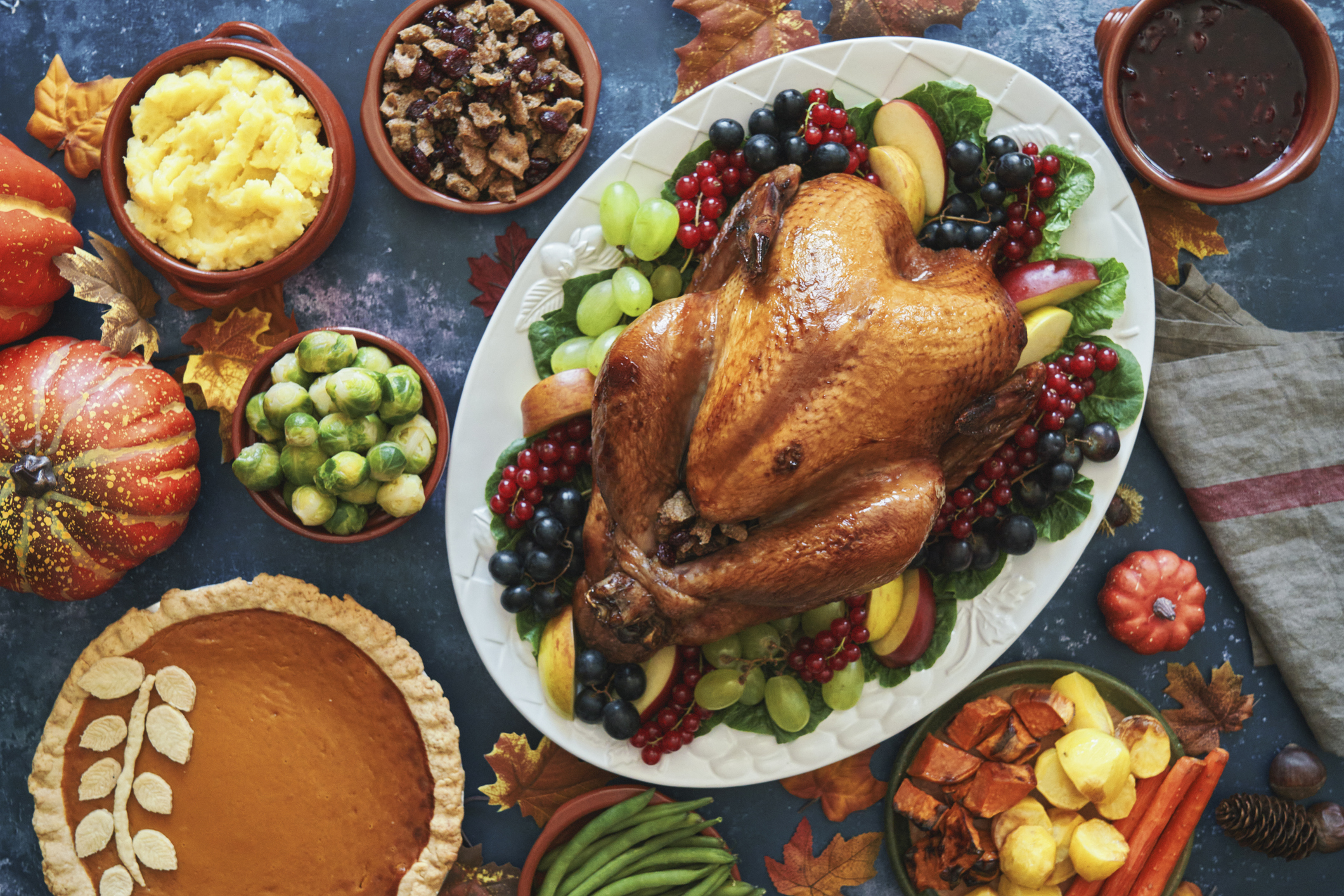Thanksgiving – a complex tradition – impacts students in different ways
November 25, 2024 - Henry Mochida

This story was originally published in November 2021.
For many North American Indigenous people, the Pilgrims’ entry into their homeland was a day of mourning, rather than a moment of giving thanks. This notion of the holiday is at odds with how it has been celebrated (and taught) as a time to express gratitude in the spirit of peacefully sharing culture and food with loved ones. Yet, the idea of Thanksgiving is rooted, not in giving thanks, but in historical violence and bloodshed.
It was the Wampanoag in 1621 who helped the first Puritans plant crops, forage and survive. However, the first official mention of a “Thanksgiving” celebration occurred in 1637, after the massacre of an entire Pequot village.
Since 1970, Indigenous people and allies have gathered in Plymouth to commemorate a National Day of Mourning on the U.S. Thanksgiving holiday to remember the genocide, the dispossession from lands and the erasure of cultures. It is a day of remembrance and protest against the racism and oppression Indigenous people continue to experience worldwide.
“Native people have been in the Americas for thousands of years prior to the arrival of Europeans,” said Kristin Arola, director of American Indian and Indigenous Studies and Karen L. Gillmore Endowed Associate Professor of Professional and Public Writing in the Department of Writing, Rhetoric and American Cultures, College of Arts and Letters.
“Having history start with a peaceful hand-off of America is a sanitized story about Indigenous people conceding to colonialism,” said Arola, who is a first-generation descendent of the Keweenaw Bay Indian Community.
It wasn’t until industrialization in the 20th century that Thanksgiving was used to promote the assimilation of millions of U.S. immigrants. The myth of the First Thanksgiving meal – the harvest celebration of 1621 – has been taught in American schools for over 150 years. But that is changing.
“Higher education is critical to understanding how and why false narratives of Thanksgiving have been presented to us to be able to change the course ahead,” said Vice President and Chief Diversity Officer Jabbar R. Bennett, Ph.D.
One way MSU has been shifting direction is in recognizing the role it played in the systematic seizure and dispossession of land from North American Indigenous people as a land-grant college. As MSU makes efforts to review its origin story, it is also important to explore how Thanksgiving celebrations can help increase the awareness of First Peoples.
Residence Education and Housing Services, or REHS, offers educational resources for learning about the National Day of Mourning including a slide deck and an activity sheet that is available for faculty and staff.
According to Eduardo Olivo, associate director for diversity, equity and inclusion at REHS, "Thanksgiving is a learning opportunity. We are all on a journey to expand our knowledge of why Indigenous people called for a National Day of Mourning."
Juan Flores, coordinator in the Office of Cultural and Academic Transitions, said, “When celebrating this year, it is important to remember that many of our Thanksgiving recipes use Indigenous foods: turkey, corn, potatoes, beans, pumpkins and cranberries.
The 22nd Annual MSU Thanksgiving Unity Dinner will be held on Thursday, Nov. 28. It will be served from noon to 2 p.m. in Brody Hall classrooms 134, 136 and 138 (241 Brody W., East Lansing, MI 48824). The dinner is for students who cannot return home to be with family and friends. Soaring food prices can make it cost-prohibitive to find affordable options.
The Unity Dinner will offer various traditional and non-traditional menu options from several cultural backgrounds. Food selections will include kosher, halal, vegetarian and gluten-free options.
Many in MSU’s community are not familiar with the traditions of Thanksgiving, and this year’s experience may be the first for international members.
“International students make up nearly 10% of MSU’s student population, and many will remain on campus while their peers leave for the holiday,” said Anjam Chaudhary, global diversity equity and inclusion program director in International Studies and Programs. "Offerings like the Unity Dinner create a sense of community to help students feel welcome and included at MSU."
Thanksgiving provides a break from classes, but it also marks the beginning of the holiday season when many members of the LGBTQIA+ community experience increased anxiety, stress and depression.
“Some students may not be out at home but are out on campus, so they have to face uncomfortable or even dangerous situations,” said Morgan Doherty, coordinator at the Gender and Sexuality Campus Center, or GSCC.
Centers like GSCC offer a space for students to relax, find community and process their emotions before breaks like Thanksgiving when there can be limited services.
Students staying on campus for the long weekend should plan to eat outside of the dining halls. Residential dining options will be adjusted from Wednesday through Saturday, with hours resuming on Sunday. Students can view dining hours at eatatstate.msu.edu.

